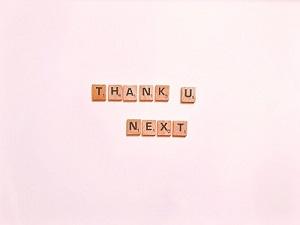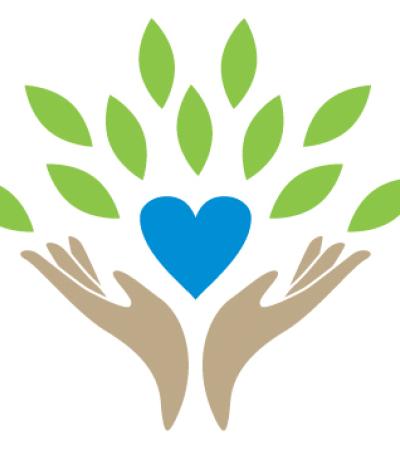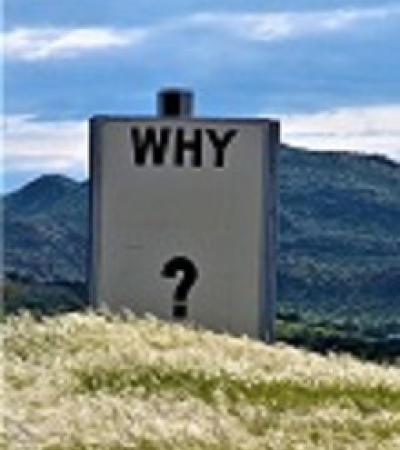In this blog series, we’ve talked about all aspects of Boomers and Beyond, a large-scale, grant-funded program series for Baby Boomers at the Palos Verdes Library District — from deciding which grant to apply for based on our community’s needs, to owning our failures, to getting people to show up for our 36 programs.
If you’ve been following along, you'll recall that we have finally finished all our programs. There is no more marketing to be done, and our partnerships are winding down. Ahhh. We're done, right?
Wrong. When the grant-funded project ends, there is still work to done.

Ace your funder reports
For starters, there are reports to write — and let us tell you, grant reports are no joke. No matter how early you start, you may feel like you’re behind. Don’t worry — that’s normal. But you can avoid some of that anxiety by being prepared.
Reporting will always take more time than you expect, so having a clear understanding of funders’ expectations is incredibly helpful. If possible, look at the reports you’ll be required to complete during your grant period. If the reports for the current grant year aren’t available, look at previous years’ reports. That will give you an indication of the types of statistics your funder will be looking for so you can track them as you go along.
Even if your funder does not require it (i.e. there is not a place on the grant application to list them), we highly recommend that you think about and record your grant project's anticipated outputs and outcomes, including any demographics.
When you're done, ruthlessly edit your final report the way you did your application. Ask other people to read it and triple-check your grammar, spelling and punctuation. In this final touchpoint, any errors will make an impression, and not the kind you want.
Learn from your mistakes
When we started looking back over our grant term, we came to some other realizations, and not all of them were positive. For starters, we had done some lackluster communicating with our own colleagues.
When we were applying for this grant, we shortsightedly only thought about how receiving a grant would affect our immediate department. Once we were in the swing of things, we realized how many other departments this undertaking really touched.
For example, we ended up ordering lots of new materials (books, DVDs, magazines, etc.) that matched our grant concept. No biggie, right? We order materials all the time! Yes, except this time, it involved using a different coding mechanism for our financials, and it meant that our acquisitions clerk had to keep track of a new budget and find a way to keep those orders and invoices separate from others. Our facilities team was called on to help us put up banners all over the Peninsula, take them down, and set up rooms throughout three library branches with a beefed-up programming schedule. And our finance department had to keep track of our budgeting and reports alongside us, in addition to keeping up with their regular workload.
In retrospect, we should have had conversations with these departments beforehand to make sure they were on board. We are extremely thankful to all of these teams for their time, work and patience — and for us, the end of this grant project offered a chance to revisit what we could have done better. As a result, we're looking into creating a grant checklist for other colleagues who embark on similar projects.

Think about sustainability (and know your limits)
We were using this grant experience as proof of concept to illustrate the importance of these types of programs in our community. Part of the grant reporting process requires you to talk about the sustainability of your programs beyond the grant period. For us, that meant looking at which programs had the highest attendance and were the most valuable (not mutually exclusive) and seeing how we could budget to continue those programs.
We found that physical activity classes were very well attended, and a lot of our patrons expressed to us the personal value they found in our offerings. So we sat down with our department manager and talked about our findings and how we could continue to offer these programs within our annual programming budget.
If we went solely based on our findings, we would host chair yoga seven days a week — but that's not going to happen. Why? First, we're not sure we could afford to host that many classes, and second, the bulk of the Boomers programming work was going to fall on us two (Laura and Deb). While we love working with seniors and have found these programs to be a great way to also get to know our patrons better, we have other programming avenues we would like to explore, other librarian duties to perform daily, and heck, sometimes we’d like to take a day or two off.
Part of programs being sustainable includes looking at who is going to support them — and knowing when you need help. Don’t forget about your own self-care.
So long, farewell...
So, that’s it! We wrote the grant, we hosted the programs, and so can you. We hope sharing some of our trials, tribulations, successes and joys will help you with your programming and grant-writing journeys.
We’re still working on it ourselves. Just moments ago we turned to each other and said, “Oh, we should really revisit that.” It’s an ongoing (some might say circular) process that doesn’t end once you close the books on your reporting. Demographics will continue to shift, community needs will change, focus will be tweaked in the future and all of that will shape how we (and you) continue these programs.
Now ... which grant are we applying for next?



